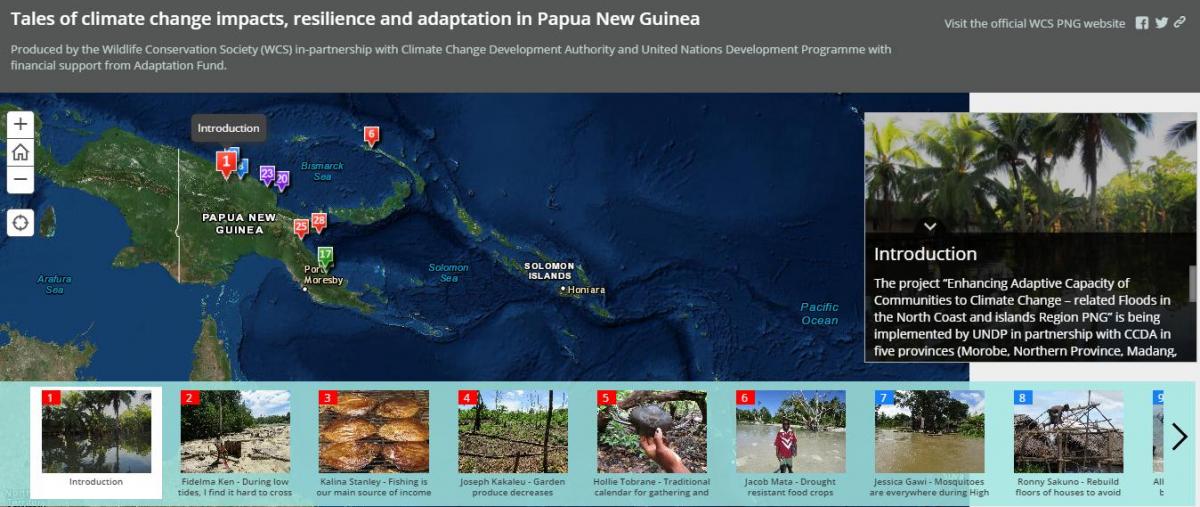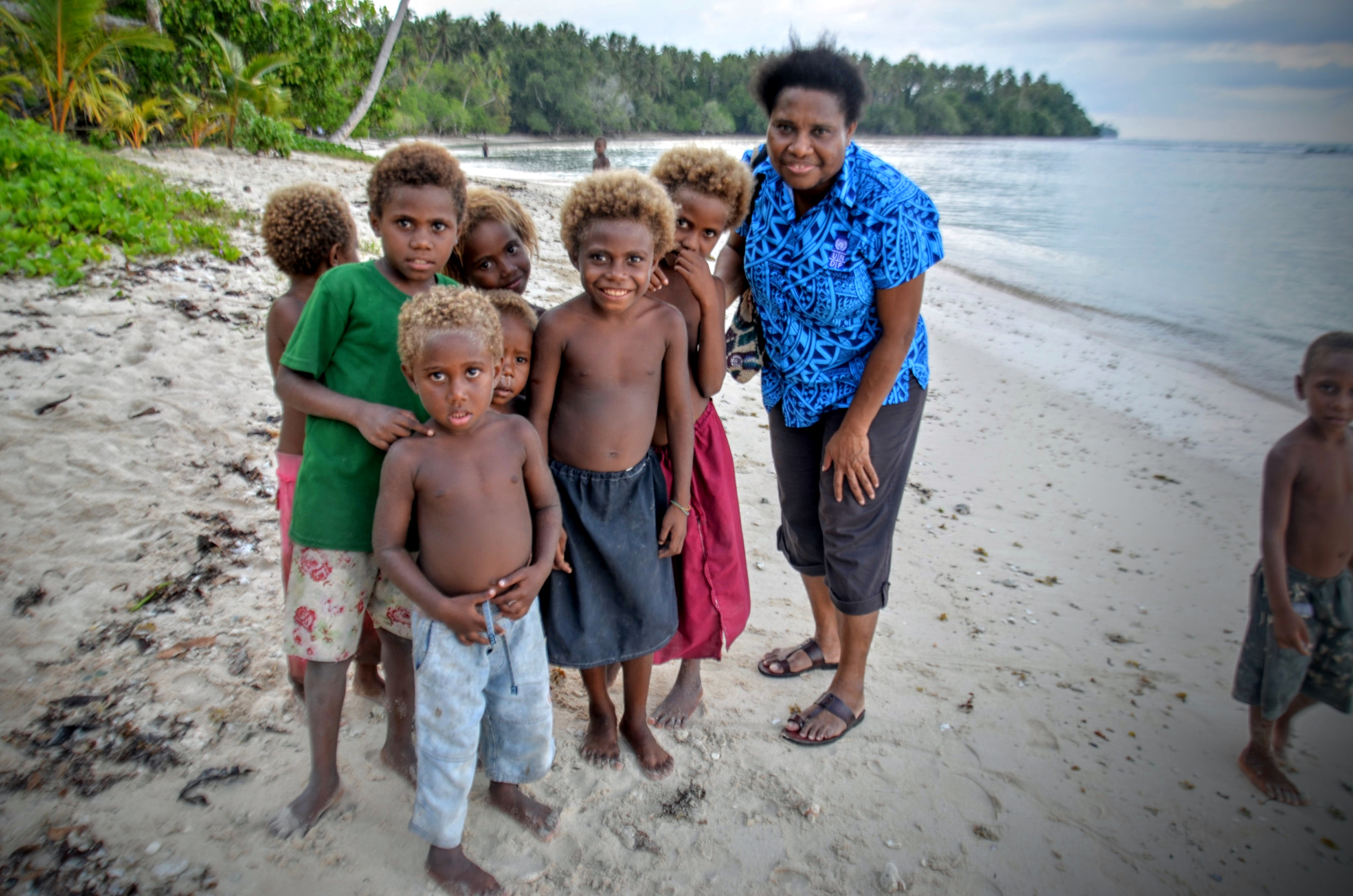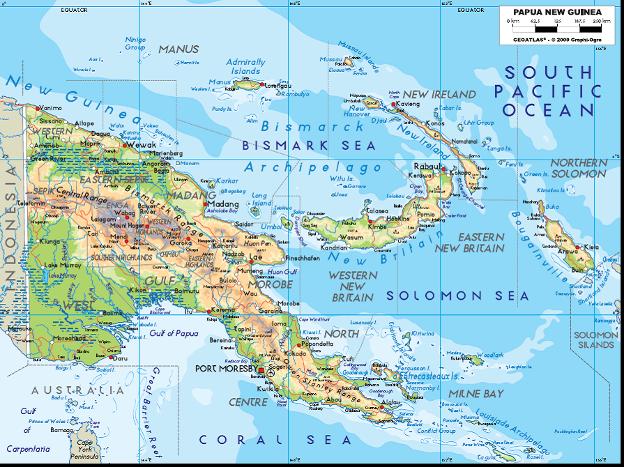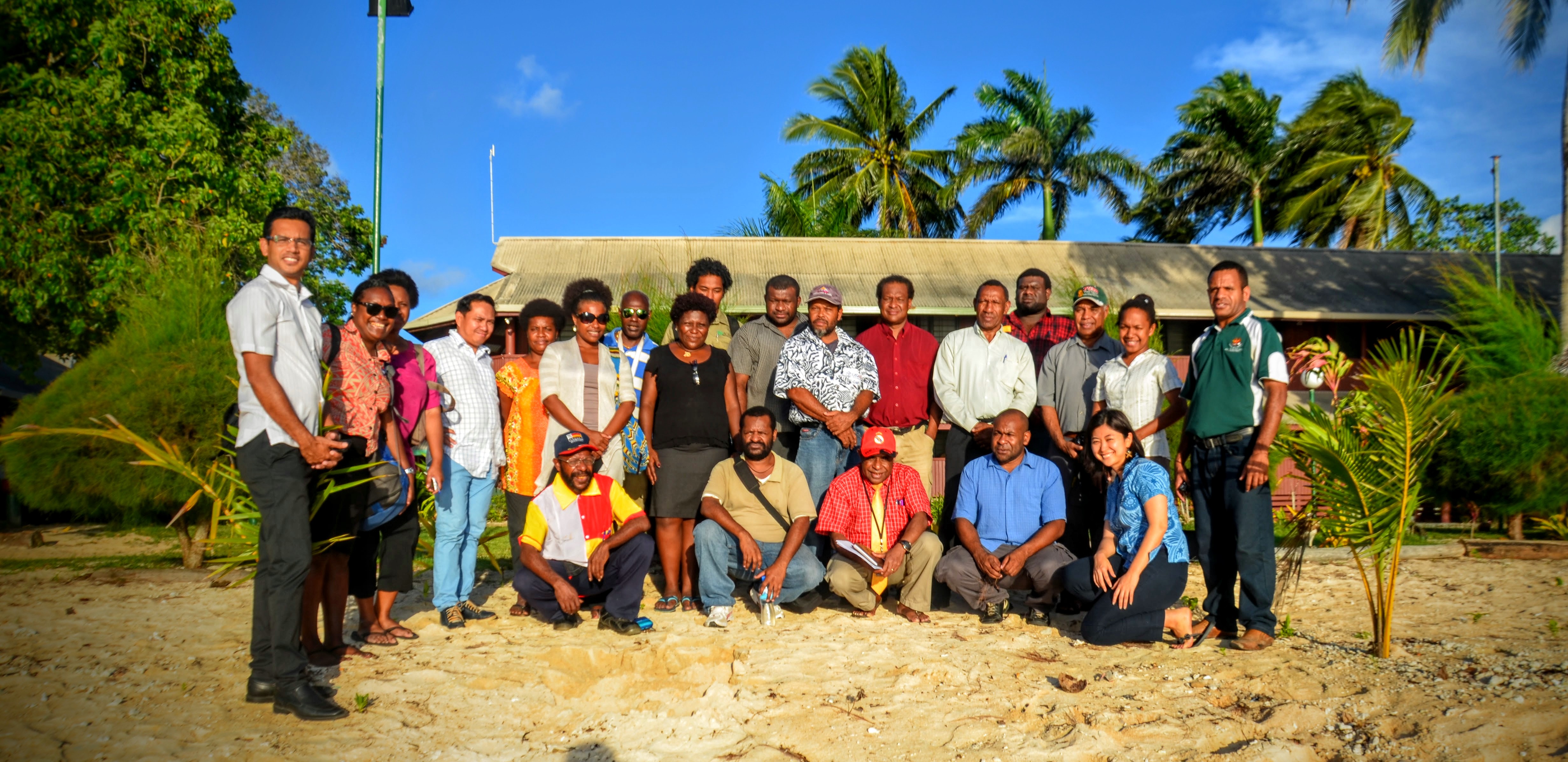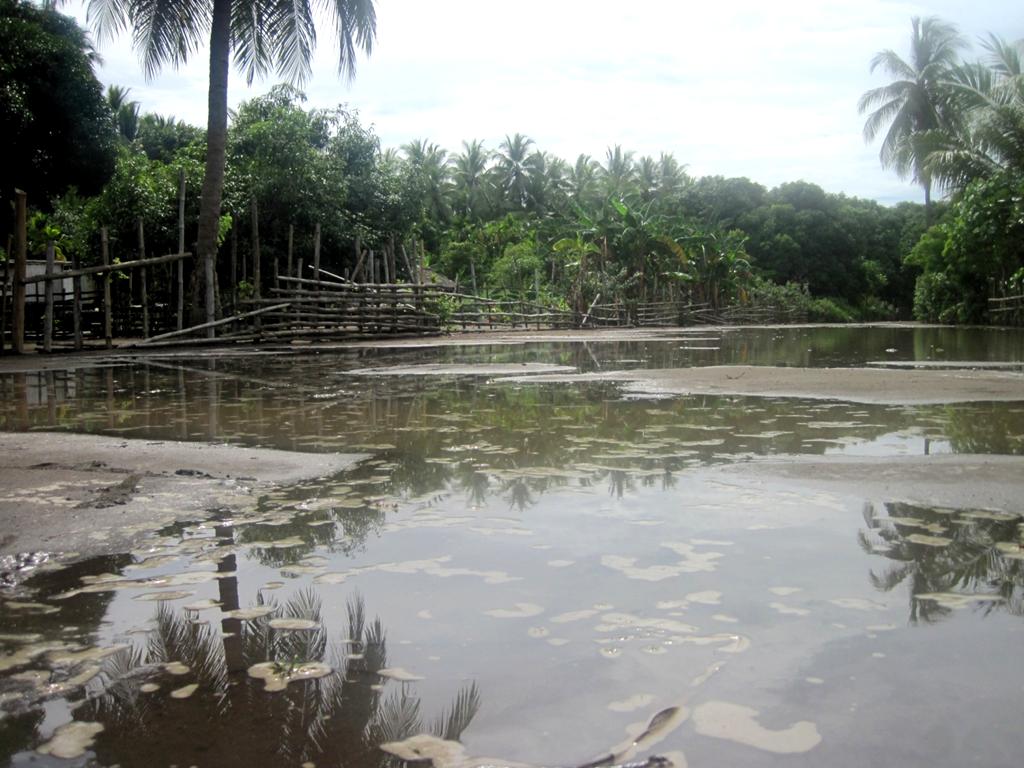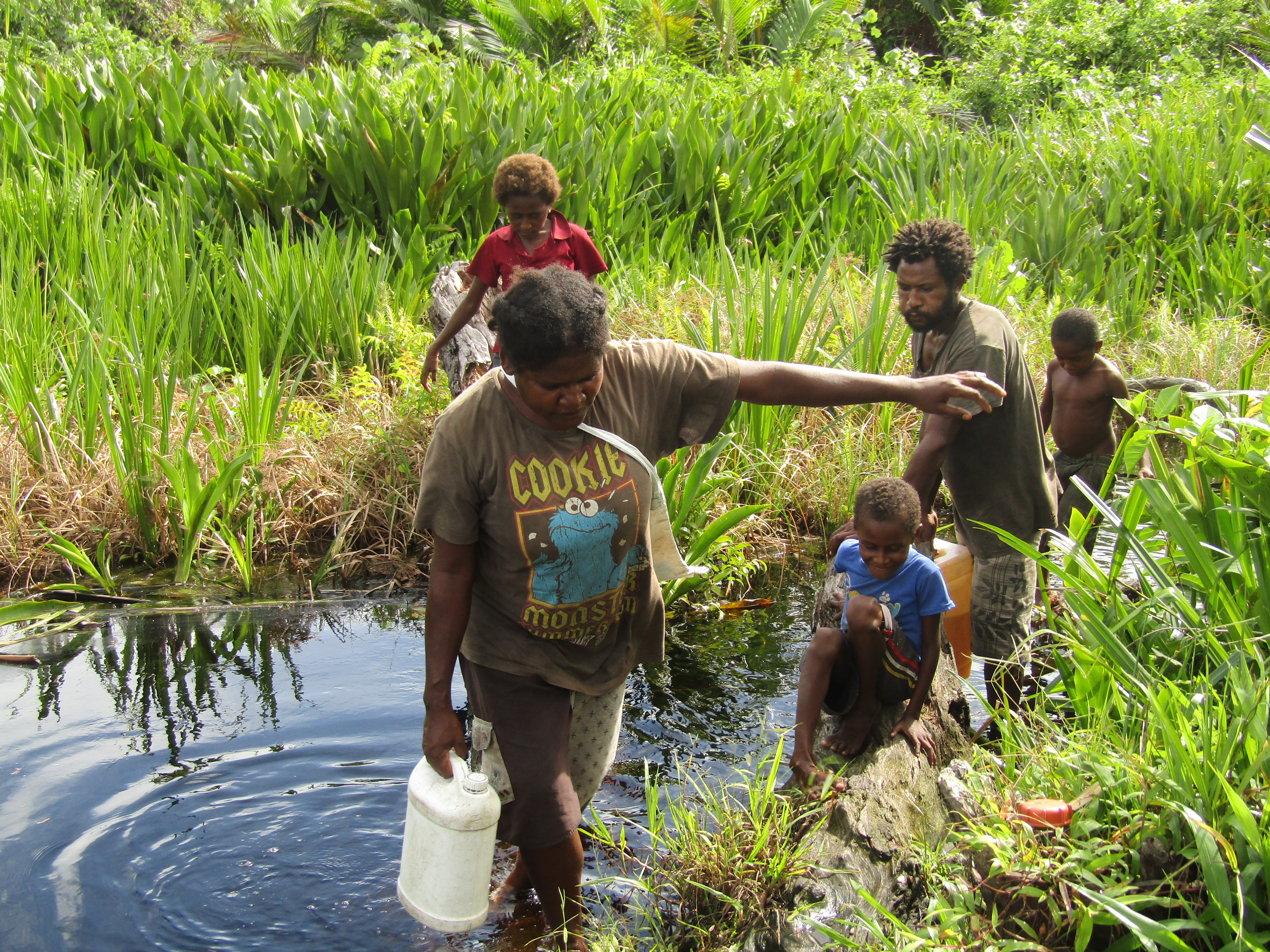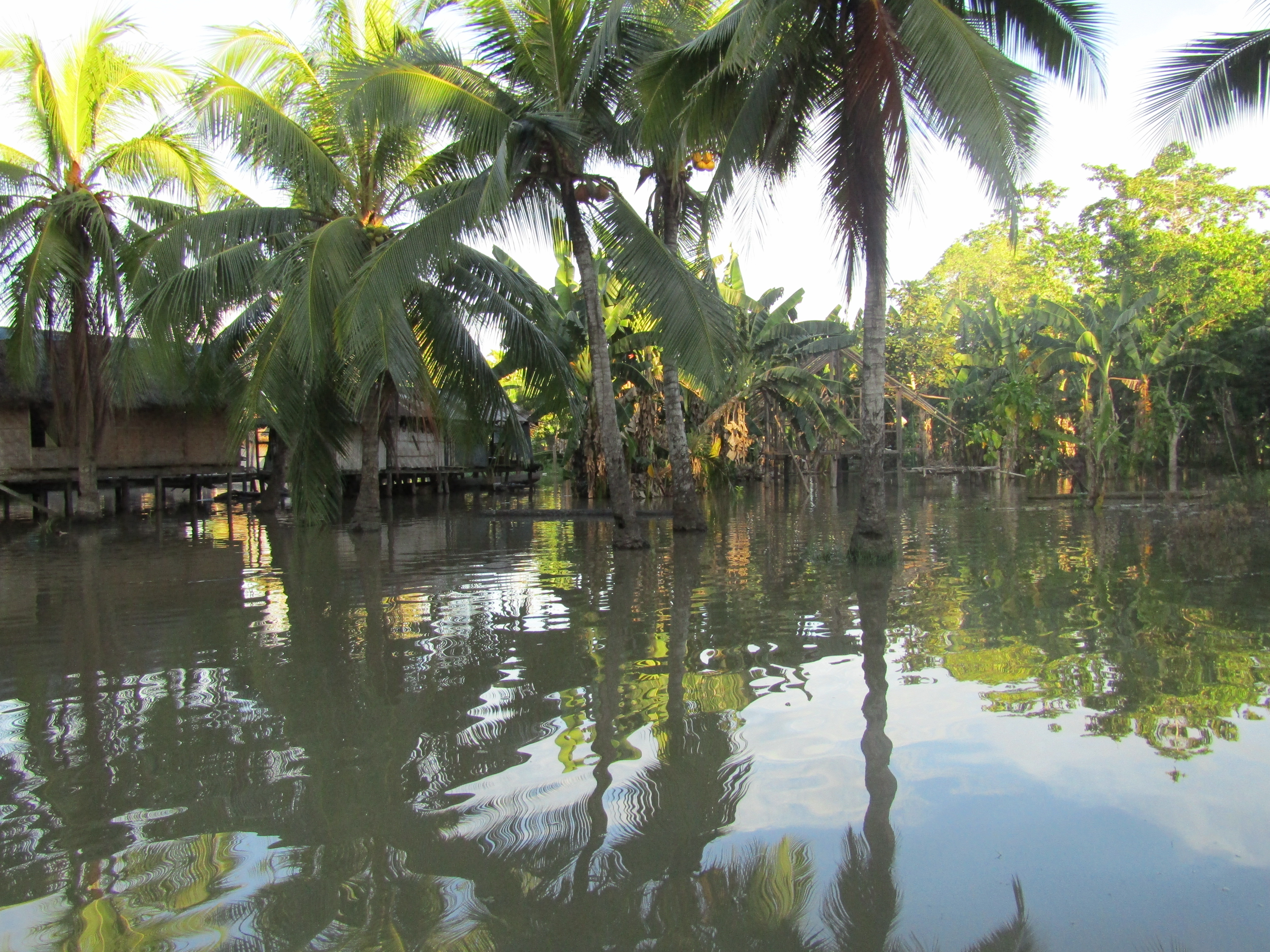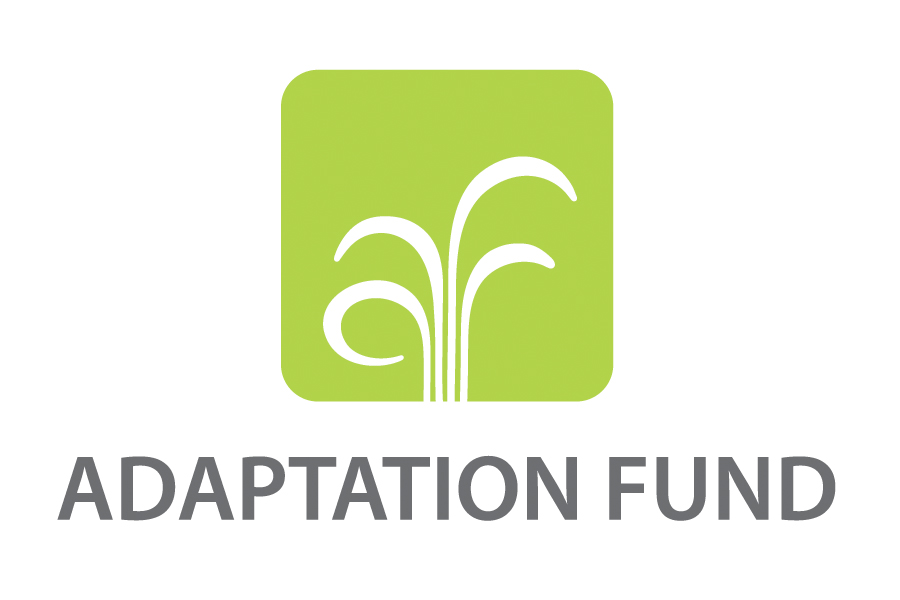Enhancing Adaptive Capacity of Communities in Papua New Guinea
Enhancing Adaptive Capacity of Communities in Papua New Guinea
In Papua New Guinea’s North Coast and Islands regions, coastal flooding is the most important climate change-related hazard. It threatens both coastal populations and important economic centers, including provincial capitals and economic. In the hinterland areas, climate change-related inland flooding is the most pressing hazard with the largest potential for widespread damage. The lack of water impoundments and/or water reticulation schemes serves to increase the vulnerability of the largely agrarian communities.
This project (2012 - 2018) sought to strengthen communities’ abilities to make informed decisions about and adapt to climate change-driven hazards that affect both coastal and riverine communities. In particular, it focused on resilience towards occurrences of coastal and inland flooding events in the North Coast area (population: 1.8 million) and the Islands Region (population: 750,000).
For updates on UNDP Early Warning Systems and Climate Resilient Development projects, click here.
For Tales of climate change impacts, resilience and adaptation in Papua New Guinea using an innovative mapping tool, click here.
Project Overview
In Papua New Guinea’s North Coast and Islands regions, coastal flooding is the most important climate change-related hazard. It threatens both coastal populations and important economic centers, including provincial capitals and economic. In the hinterland areas, climate change-related inland flooding is the most pressing hazard with the largest potential for widespread damage. The lack of water impoundments and/or water reticulation schemes serves to increase the vulnerability of the largely agrarian communities.
This project (2012 - 2018) sought to strengthen communities’ abilities to make informed decisions about and adapt to climate change-driven hazards that affect both coastal and riverine communities. In particular, it focused on resilience towards occurrences of coastal and inland flooding events in the North Coast area (population: 1.8 million) and the Islands Region (population: 750,000).
For updates on UNDP Early Warning Systems and Climate Resilient Development projects, click here.
For Tales of climate change impacts, resilience and adaptation in Papua New Guinea using an innovative mapping tool, click here.
Project Details
The impact of climate change-related hazards in Papua New Guinea (PNG) has been increasing in intensity and frequency. Tropical storms and cyclones have become more common and further impacts from climate change include the loss of food gardens (widely used for subsistence farming) due to extensive flooding (both in coastal and riverine areas) combined with extended periods of drought. The rising sea level is causing the gradual submersion of some of PNG‘s islands. In addition, saltwater intrusion is lowering clean groundwater levels and loss of freshwater, particularly on islands and in coastal areas. This, too, poses a challenge for innovative agricultural expansion. In the highlands, increasing hailstorms and frost events have destroyed gardens used for subsistence farming. Irregular rainfall patterns with periods of prolonged dry seasons affect soil fertility and yield while increasing the spread of infectious diseases and pests, which are further decreasing agricultural productivity and producing food shortages in some areas of the country. With this drastic onset of climate change impacts, the country is increas
The programme strategy focuses on implementing measures as well as building institutional and policy capacities that promote efficient and cost-effective adaptation to coastal and inland flood- related risks at the sub-national levels. Community level-interventions will address specific vulnerability characteristics of two distinct geographic areas: the Northern coastal regions and island provinces, which face coastal flooding risks, as well as the river communities in the North Coast Region that are exposed to inland flooding.
News
Key Results and Outputs
Component 1: Adaptation to coastal flooding-related risks and hazards for North Coast and Islands Region communities
Establish a coastal Early Warning System (Output 1.1), along with accompanying flood preparedness and response plans and systems (Output 1.2). Support for community-led mangrove reforestation and conservation projects (Output 1.3), as well as implementation of coastal adaptation measures in 8 communities (Output 1.4), will reduce exposure to flooding events.
Component 2: Adaptation to inland flooding-related risks and hazards for river communities in Morobe, East Sepik and West Sepik
Establish inland flooding Early Warning System (Output 2.1) along with accompanying flood preparedness and response plans and systems (Output 2.2). Implement riverbank protection measures to protect 8 river communities (Output 2.3).
Component 3: Institutional strengthening to support climate- and disaster-resilient policy frameworks
Integrate climate change risk and resilience into development policies, legal and planning frameworks (Output 3.1), furthering this capacity-building through systematic training of policymakers at national, provincial, and district levels (Output 3.2).
Component 4: Awareness raising and knowledge management
Lessons learned and best practices generated and distributed (Output 4.1); climate change awareness and education programmes carried out (Output 4.2).
Programme Meetings and Workshops
Reports and Publications
Training & Tools
PIFs
Multimedia
Enhancing Adaptive Capacity of Communities in PNG - A Success Story
Papua New Guinea is susceptible to a host of natural disasters whose impact is projected to intensify with the onset of climate change. Worsening tropical storms, cyclones, drought, and even hailstorms in the highlands have already imposed setbacks to the country, its economy, environment, and basic human development needs.
Monitoring and Evaluation
Programme monitoring and evaluation will be conducted in accordance with established UNDP procedures by the PMU with the support of UNDP Staff. The results framework for the programme provides outcome and output level indicators along with their corresponding means of verification. These will form the basis on which the programme's Monitoring and Evaluation (M&E) system will be built.
The following sections outline the principal components of the M&E plan and indicative cost estimates related to M&E activities. The programme's M&E plan presented here for approval by the AF Board will be reviewed and finalized in the programme's Inception Report following a collective fine-tuning of indicators, means of verification, and the full definition of programme staff M&E responsibilities.
Audits: The Audit will be conducted in accordance with UNDP Financial Regulations and Rules and applicable audit policies on UNDP projects by a legally recognized auditor of the Government, or by a commercial auditor engaged by the Government.
In accordance with the programming policies and procedures outlined in the UNDP User Guide, the Programme will be monitored at the national levels through the following:
Within the annual cycle
- On a quarterly basis, a quality assessment shall record progress towards the completion of key results, based on quality criteria and methods captured in the Strategic Results Framework).
- An Issue Log shall be activated in Atlas and updated by the Programme Manager/National Programme Managers to facilitate tracking and response of potential problems or requests for change.
- Based on the initial risk analysis submitted, a risk log shall be activated in Atlas and regularly updated by reviewing the external environment that may affect the programme implementation.
- Based on the above information recorded in Atlas, a Programme Progress Report (PPR) shall be submitted by the Programme Manager to the Programme Board and the National Programme Managers to the National Programme Boards through Programme Assurance, using the standard report format available in the Executive Snapshot.
- A Programme Lesson-learned log shall be activated and regularly updated to ensure on-going learning and adaptation within the organization, and to facilitate the preparation of the Lessons-learned Report at the end of the programme.
- A Monitoring Schedule Plan incorporating the activities outlined in the table below shall be activated in Atlas and updated to track key management actions/events.
Annually
Annual Review Report. An Annual Review Report shall be prepared by the National level Programme Manager and shared with the Programme Board. As minimum requirement, the Annual Review Report shall consist of the Atlas standard format for the Quarterly Progress Report (QPR) covering the whole year with updated information for each above element of the QPR as well as a summary of results achieved against pre-defined annual targets at the output level.
Annual Programme Review. Based on the above report, an annual programme review shall be conducted during the fourth quarter of the year or soon after, to assess the performance of the programme and appraise the Annual Work Plan (AWP) for the following year. In the last year, this review will be a final assessment. The national review is driven by the Programme Board and may involve other stakeholders as required. It shall focus on the extent to which progress is being made towards outputs, and that these remain aligned to appropriate outcome(s). The regional review is driven by the Programme Board.
Mid-term and terminal evaluation report
According to established UNDP practices, the programme will undergo an independent mid-term and terminal evaluation.
Notes on the M&E Overview:
- A technical Advisor with expertise on climate change adaptation will be engaged to provide technical monitoring of the project. This will involve assessing as well as providing technical advice on the design and implementation of adaptation options.
- Provincial-level Climate Change Committees will be established to begin the process of integrating and coordinating climate change work and also to monitor progress of the AF project. The Provincial Climate Change Committee shall report to the Provincial Administrator and its TOR and membership will be finalized during the inception workshop.
